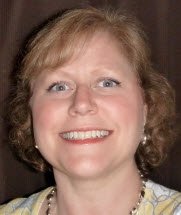|
Author: Lisa Hearne – Communications Manager, North Carolina State Board of CPA Examiners
Boards of accountancy can use social media to inform candidates and educators about the exam (changes in content or anticipated score release dates), to remind licensees about upcoming deadlines (license renewal or CPE reporting), to heighten public awareness of the board's work (license verification or complaint resolution), to provide general information about the board (meeting dates, various requirements, or website highlights), and to share information relevant to the accounting profession (changes in professional standards, announcements from the IRS, etc.). With many boards of accountancy struggling with budget issues, the traditional methods of communicating with stakeholders can be expensive, especially when information needs to be disseminated to a large number of recipients. In contrast, most social media platforms are completely free to use; the only cost to users is the time spent on updating profiles and interacting with contacts, which is something that can be done in as little as 20 minutes a week. Through social media, boards of accountancy can publish information in seconds, making it possible to update, alter, supplement and discuss information in a way completely different from printed materials, or in some cases, a website. Whereas traditional media only allow for one-way communication, Facebook, Twitter, etc., provide the opportunity for boards of accountancy to have "conversations" with constituents by allowing users to ask questions, share information or comment on postings. As an added benefit, that interaction may spark additional conversations among the board and other users. Such conversations could serve as the basis of future postings. In many ways, social media levels the playing field for boards of accountancy as it is accessible to anyone, regardless of the number of staff members. Social media tools are open to anyone and simple to use, even for people with basic IT experience. All that is required is a computer and an Internet connection. Even if you do not have a computer, most sites offer mobile versions that can be accessed on a smartphone. Although some boards of accountancy are already using social media, others are cautious of utilizing social media and have questions about how to get started. The Social Media Subcommittee of the Communications, Outreach and Relations Committee is available to assist your board with the set-up and implementation of a Twitter account or a Facebook page. Lisa Hearne serves as Communications Manager for the North Carolina State Board of Certified Public Accountant Examiners. She also serves on NASBA's Communications, Outreach and Relations Committee. Lisa can be contacted at [email protected]. |
Other Suggested Reading
"Turn Your Social Media Into Your Professional Media" Ryan Hirsch 5/1/12 "Top 14 Government Social Media Initiatives" J. Nicholas Hoover 2/27/2012 |

 When you think of Twitter, Facebook or LinkedIn, your first thought may be that these social media sites are only for celebrities talking about the latest Hollywood drama, people sharing information about their personal lives, or perhaps people trying to network to find a job. While these assertions may be true, social media tools also offer unparalleled opportunities for boards of accountancy to build stronger, more successful relationships with licensees, CPA Examination candidates, firms and the public at large.
When you think of Twitter, Facebook or LinkedIn, your first thought may be that these social media sites are only for celebrities talking about the latest Hollywood drama, people sharing information about their personal lives, or perhaps people trying to network to find a job. While these assertions may be true, social media tools also offer unparalleled opportunities for boards of accountancy to build stronger, more successful relationships with licensees, CPA Examination candidates, firms and the public at large.